In South Betul, a bamboo revolution led by IFS Officer Vejaynantham TR is transforming barren lands and boosting local farmers’ incomes. Discover how this visionary initiative is revitalizing communities.
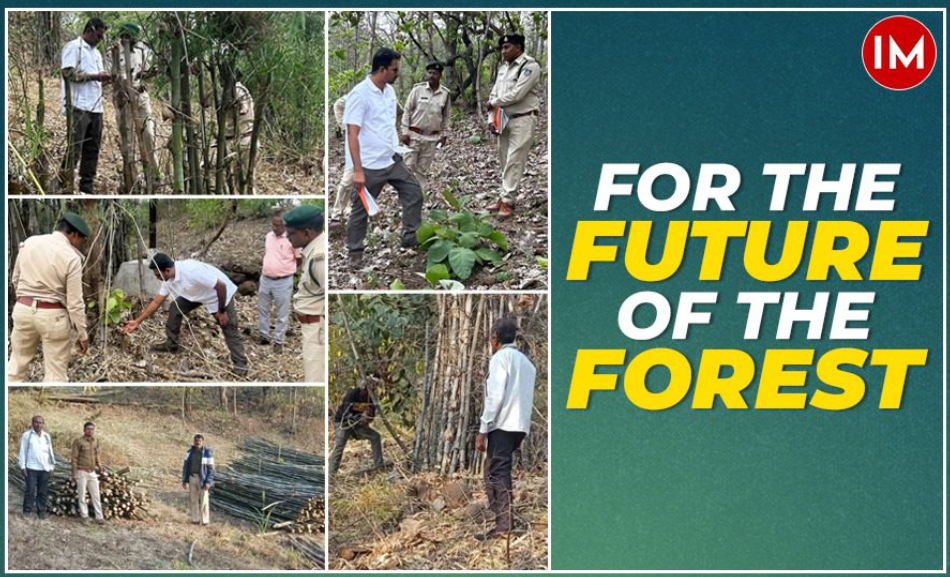
In the heart of Madhya Pradesh, the South Betul Forest Division is witnessing a transformation driven by a visionary IFS officer, Vejaynantham TR. As the Divisional Forest Officer (DFO), Vejaynantham has spearheaded an innovative initiative to promote bamboo cultivation in local villages. This initiative, part of his broader ‘Van Vikas se Gram Vikas’ (Forest Development for Village Development) campaign, is bringing tangible and intangible benefits to the region, significantly enhancing the lives of local farmers.
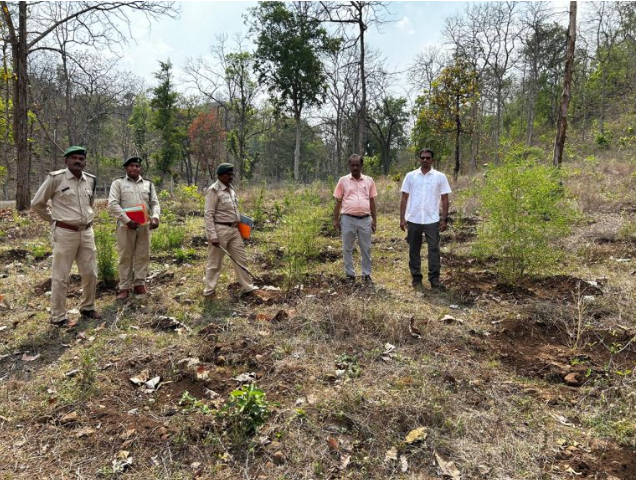
THE BAMBOO REVOLUTION
Traditionally, farmers in the region cultivated long-rotation species like teak, which took years to yield benefits. Recognizing the need for a faster return on investment and sustainable forest management, Vejaynantham introduced bamboo cultivation.
Bamboo, a fast-growing grass species, offers a myriad of benefits, including soil moisture conservation, groundwater recharge, river rejuvenation, and cleaner air and water. However, its tangible benefits are particularly noteworthy.
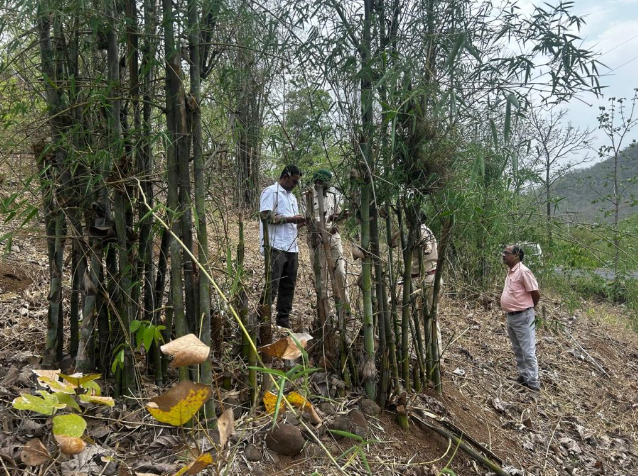
HARVESTING SUCCESS IN CHICHDANA VAN SAMITI
In a groundbreaking effort, the South Betul Forest Division, under Vejaynantham’s guidance, selected a thriving bamboo plantation in Chichdana Van Samiti for a pilot project. The initiative involved conducting bamboo cleaning operations, a crucial step in ensuring the health and productivity of bamboo plants.
“Without regular thinning, bamboo clusters can become overcrowded, leading to competition for sunlight and resources, ultimately causing many poles to die prematurely,” he stated.
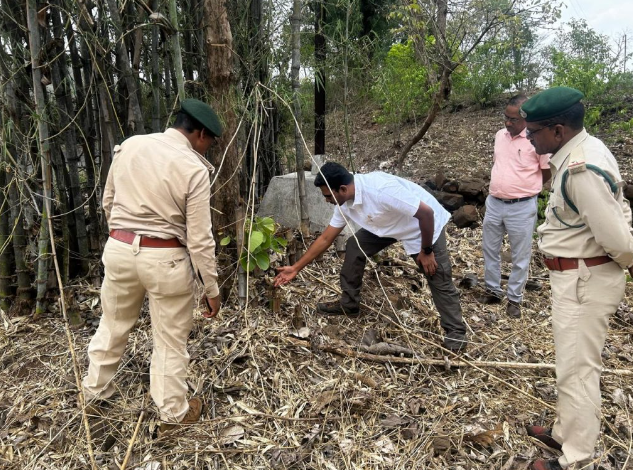
The results of this operation were impressive. The cleaning yielded approximately 15,000 bamboo poles, which were sold at market rates, generating around three lakh rupees for the Samiti.
This revenue provides the community with funds for essential development activities, such as renovating schools and improving water facilities, showcasing the direct economic benefits of bamboo cultivation.
THE CRUX OF JOINT FOREST MANAGEMENT
The success of the bamboo initiative in Chichdana Van Samiti is a testament to the principles of Joint Forest Management (JFM). JFM emphasizes community involvement in forest conservation and sustainable use of forest resources.
By promoting bamboo plantations in encroached forest areas, the initiative not only restores degraded lands but also provides immediate benefits to the community. This approach ensures that the local population sees the value of conservation and actively participates in it.
“Bamboo is one such species that can grow to their full capacity in just 4-5 years and with community participation, helps us to protect the forests. The bamboo production in new cultivation zones will be completely given to the community and in case, it is growing in an already protected dense forest, then 20% of the revenue generated from the production will be given to the villagers, in order to acknowledge them for already protecting the forest from before, by being involved in bamboo plantation,” he shared with Indian Masterminds.
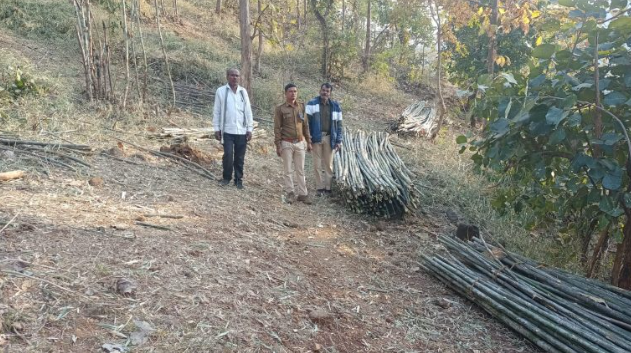
OVERCOMING CHALLENGES
The journey to successful bamboo cultivation was not without challenges. Initially, many communities harvested bamboo prematurely, which reduced potential revenue and compromised the health of the bamboo stands.
“The main challenge was to convince the community to let it grow fully by following the proper procedure in order to get the maximum revenue out of it,” he shared.
Vejaynantham and his team engaged in extensive community outreach and education to address this issue. They emphasized the importance of allowing bamboo poles to mature fully before harvesting. This approach, combined with the visible success in Chichdana, gradually convinced other communities to adopt better practices.
A LEGACY OF FOREST AND COMMUNITY DEVELOPMENT
The bamboo initiative in South Betul is not a recent development. Its roots trace back 10-15 years when the forest department identified degraded areas for rehabilitation through bamboo plantations.
Local communities played a crucial role in this effort, cultivating and protecting the land, leading to the restoration of healthy forests. Today, these efforts are bearing fruit, with thriving bamboo forests providing economic and environmental benefits.
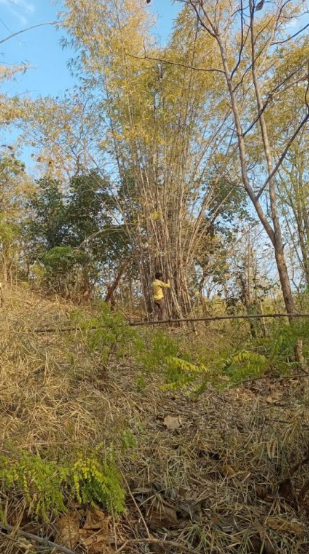
A BRIGHT FUTURE
During a recent field visit, IFS officer Vejaynantham witnessed the impressive growth of bamboo poles in the region. Interacting with locals, he learned about their dedication to protecting and nurturing the forest. The biodiversity of the area has increased, soil erosion has decreased, and the community now enjoys a steady revenue stream from bamboo sales.
Article Credit: indianmasterminds